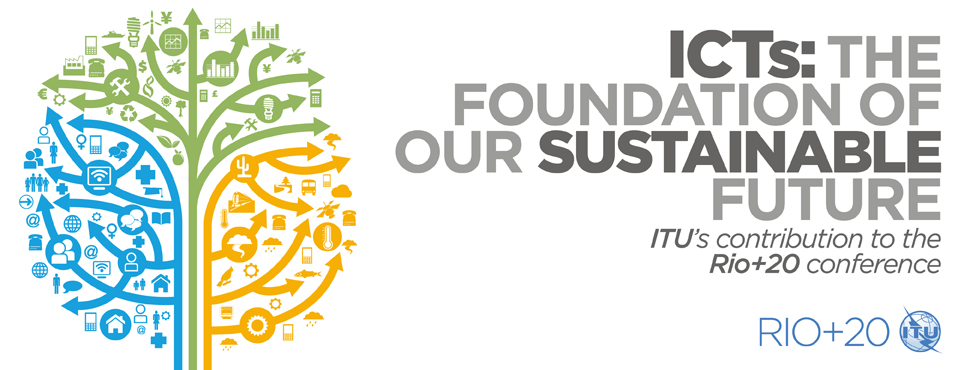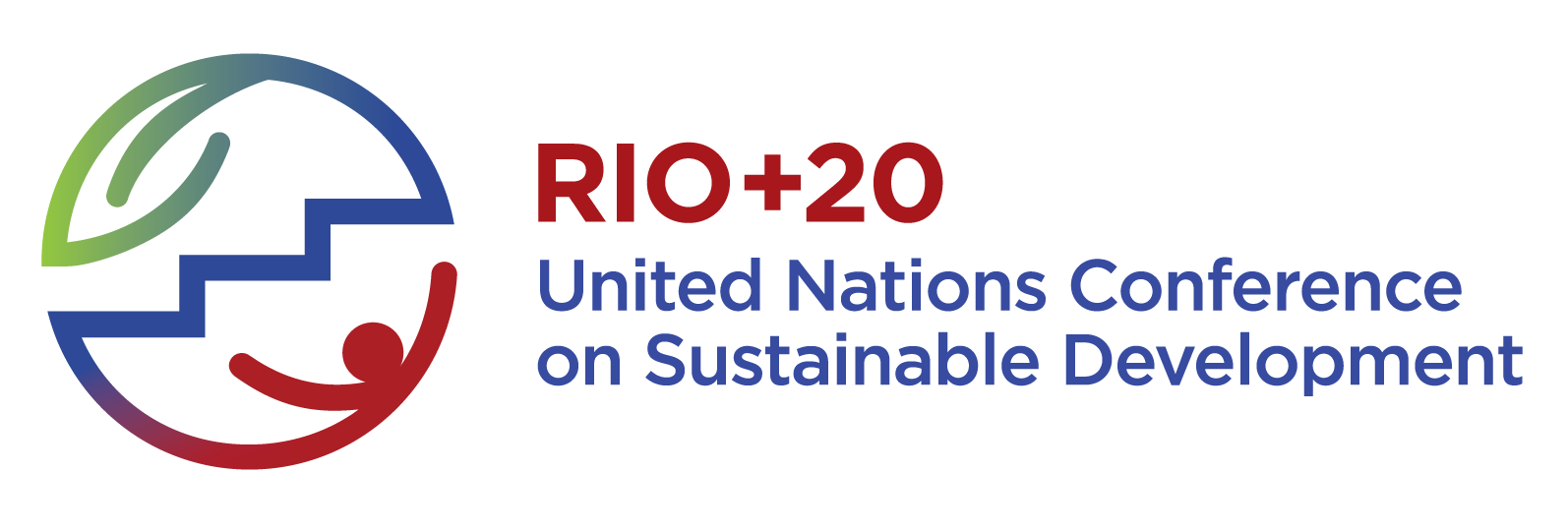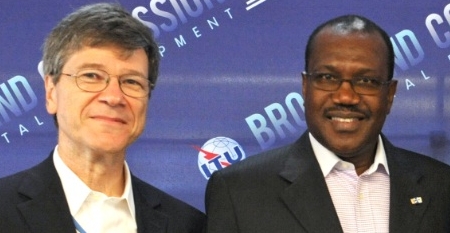
|
 |

20-22
June 2012
Rio
de Janeiro, Brazil
Share
|
|
|
| |
|
Home |
ITU inputs to
Rio+20 |
News and
resources |
Secretary-General's messages |

|
|
Rio+20
is an
alternative name
given to the
2012 United
Nations
Conference on
Sustainable
Development
(UNCSD). Held to
mark of the 20th
anniversary of
the 1992 United
Nations
Conference on
Environment and
Development
(UNECD or Earth
Summit), Rio+20
will take place
in Rio de
Janeiro (Brazil)
on 20-22 June
2012. |
|
|
|
ICTS ARE A
CATALYTIC STEP
FOR ENDING
EXTREME POVERTY
A joint message from ITU Secretary-General
and Professor
Jeffrey Sachs
|
|
|
 Dear
RIO+20 Delegates Dear
RIO+20 Delegates
As you gather to
deliberate on
the outcomes of
the RIO+20
Conference on
Sustainable
Development, we
ask that you
consider the
crucial
importance of
information and
communication
technology
(ICT), and
especially
broadband
networks and
services, as a
catalyst for
sustainable
development.
Broadband is
empowering
mobile
technologies as
the new
cutting-edge of
development
practice.
Broadband
networks for
clinics, schools
and health
workers are
creating a
revolution in
knowledge
dissemination,
distributed
problem solving,
disease control,
quality
education, and
business
development.
Investments in
ICT networks
deliver
long-term
sustainable
economic
development.
Recent research
suggests that
broadband
penetration can
significantly
boost economic
growth. It also
offers crucial
opportunities to
improve health,
education,
financial
services, and
the overall
quality of life,
especially by
ending the
isolation that
often afflicts
rural
communities.
ICT networks,
powered by
broadband, can
also deliver
more sustainable
social
development. Not
only can
individuals
access
information and
share knowledge
in real time;
they can also
create social
networks that
protect their
rights, foster
local cultures,
and empower the
powerless.
In addition,
investments in
ICT networks
help to deliver
more sustainable
environmental
development.
Creating a
low-carbon
economy means
transitioning
from the
energy-intensive
physical
infrastructure
of the 20th
century to the
more
energy-efficient
information
infrastructure
and smart grids
that are
essential in the
21st century.
ICT networks and
broadband
technology are
certainly among
the most
important 21st
century tools
for sustainable
development,
offering
particular hope
and
opportunities
for the poorest
of the poor.
Fortunately, the
least developed
countries have
already taken
steps towards
recognizing the
great potential
of ICT. The
Istanbul Plan of
Action for the
Least Developed
Countries,
signed last
year, places ICT
networks as core
infrastructure
alongside water,
electricity and
transportation.
Private business
is also
investing large
sums to create
networks in
today’s poor
countries,
helping them to
be the
middle-income
countries of the
next
generation.
We therefore
kindly ask as
you deliberate
on ‘The Future
We Want’ that
you promote ICT
networks and
broadband in the
outcome document
as a crucial
catalytic step
for global
sustainable
development, and
especially for
ending extreme
poverty, hunger,
and preventable
deaths in our
time.
Sincerely
Professor
Jeffrey Sachs
Director of The
Earth Institute
- Columbia
University
Dr. Hamadoun Touré
ITU Secretary-General
|
|
|
|



